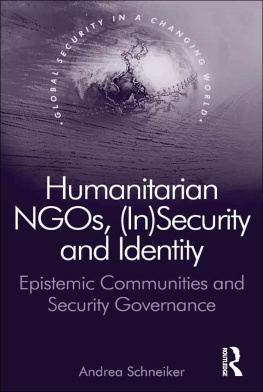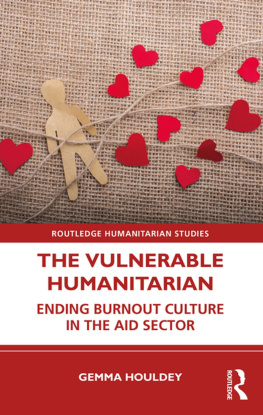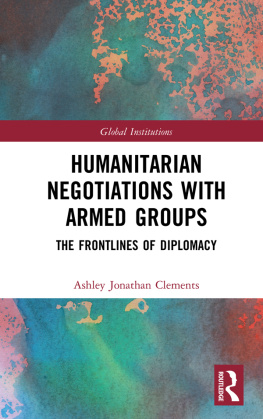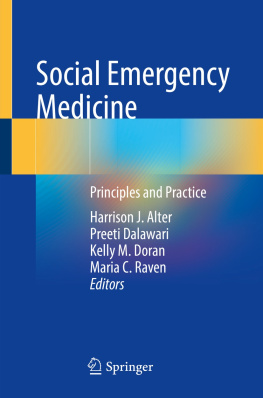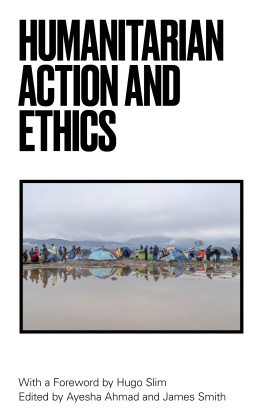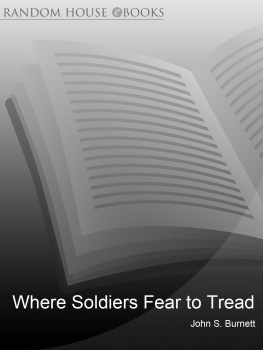The Worlds Emergency Room
The Growing Threat to Doctors, Nurses, and Humanitarian Workers
Michael VanRooyen

St. Martins Press
New York
Thank you for buying this St. Martins Press ebook.
To receive special offers, bonus content, and info on new releases and other great reads, sign up for our newsletters.
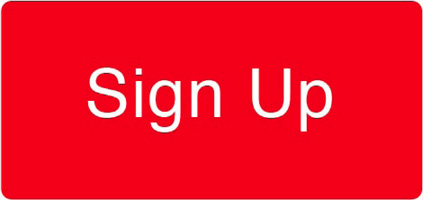
Or visit us online at us.macmillan.com/newslettersignup
For email updates on the author, click here.
The author and publisher have provided this e-book to you for your personal use only. You may not make this e-book publicly available in any way. Copyright infringement is against the law. If you believe the copy of this e-book you are reading infringes on the authors copyright, please notify the publisher at: us.macmillanusa.com/piracy .
For 69196-14710
At a signal from the man in charge, the young soldier shoved the muzzle of his AK-47 into my mouth. The oily metal clanked against my teeth. I tried to jerk away, but a soldier standing behind me pushed me back toward the gun. A hand held my head in place. As terrified as I was, I remember thinking that the gunman wouldnt pull the trigger if it meant putting a bullet through his colleagues hand. The first soldier withdrew the muzzle, leaving a taste of oil and dirt in my mouth. I looked downward, avoiding the commanders gaze. The interrogation continued.
For five hours, six Zairian soldiers and government agents surrounded me in a stifling, dimly lit room. Jabbing their fingers into my chest, they asked over and over, in French and broken English, what I was doing in Bunia. It was December 1996. I had flown in from Kigali, Rwanda, the day before on a relief mission, accompanied by a colleague and our pilot. We were responding to urgent calls from Nyankunde Hospital in northeastern Zaire for food and medical supplies. Refugees of the 1994 Rwandan genocide, forced from camps farther south, were flooding the region. The conflict in Rwanda had unleashed what has been termed the African World War, and Bunia was about to become its epicenter.
Laurent Kabila, the leader of a rebellion in Zaire, was marching toward Kisangani, the provincial capital, scattering the Zairian army as they advanced. The countrys national armya disorganized and corrupt militiafled northward, looting, raping, and killing as they moved from village to village. The Zairian army was now approaching Bunia, a small town in northern Zaire near Nyankunde Hospital. We arrived in Bunia just a few days ahead of their advance, landing at dusk on the small airstrip outside of the town. My friend Ken Isaacs, pilot Mark Brumbelow, and I were brought to a small, dark office near the airstrip. Our passports were confiscated. We were questioned on the spot by a large man flanked by two young guards holding machine guns. What are you doing here? Who gave you a visa to come? Who are you working for? We replied that we were from an American nongovernmental organization, bringing a relief shipment to Nyankunde Hospital. As the sun set, it became darker in the small concrete building. With no electricity at the airport, they stopped the interrogation. The authorities confiscated our plane, leaving it on the tarmac, and placed us under house arrest.
The next day, the interrogation began in earnest. The three of us were separated, and I was brought to a warehouse at gunpoint. I sat in a small, dark, uncomfortably hot room with three interrogators in front of me. Standing behind us were three young soldiers in tattered uniforms clutching AK-47s. One of my interrogators leaned forward, a pistol in his hand. He toyed with it throughout the questioning.
How did you get a visa? he asked. I explained that ours were the last visas issued by the Zairian embassy in Kigali just before the diplomats evacuated.
Why are you here? he asked again. Speaking a mix of French, English, and Lingala, the local language used by the Zairian military, he accused us of spying for the CIA and the US military and of carrying supplies for the rebel militia. He pointed to my black Doc Martens boots and said they were military issue.
What is your profession? Who do you really work for?
I told him I was an emergency physician and a civilian. I was sweating through my shirt and wondered if they saw my fear as guilt. They exchanged glances around the room, and again he pointed with his pistol to my boots. He refused to believe I was a civilian physician.
Youre too thin to be a doctor, he scoffed.
I was getting frustrated. Thats ridiculous, I blurted out.
He shoved the barrel of the AK-47 into my mouth.
I quickly apologized, and the questioning continued.
After the interrogation, we spent four days under house arrest, hearing intermittent news reports on a shortwave radio that the Zairian armed forces were coming closer. They were terrorizing villages as they moved toward Bunia, abducting and raping women as they looted each town. The Rwandan-backed Kabila campaign sought to overthrow the Zairian government and had tacit support from the United States. Anyone coming from Rwanda with clear ties to America would be in danger. The government forces were only about 30 miles outside of Bunia, but their convoy was delayed by rain and muddy roads.
Two local physicians bravely stepped forward to help negotiate our release. Dr. Tony Ukete and Dr. Ahuka Ona Longombe, both revered surgeons in Zaire, were well known among the community and the militia holding us. They leveraged their influence on our behalf. In a peculiar irony, my military boots were also the key to our release: after we distributed bribes totaling about $7,600 from the cash concealed in their soles, we were allowed to leave. We were forced to sign deportation papers before making our way on the tarmac to the Cessna Caravan, a ten-passenger, single-engine plane commonly used to travel between small airports in East Africa. We were instructed by our captors to fly to Kampala, Uganda, carrying with us an Egyptian arms dealer, but I was concerned that he might be carrying a gun and, once airborne, could force us to fly elsewhere. We finally agreed to take him along, but only after I insisted that we search him for weapons. Having never searched anyone before, I apologized as I patted him down on the airstrip outside the plane. I think he was more nervous than I, and we both were anxious to get out of Bunia. After making sure our Egyptian passenger was indeed unarmed, we boarded the plane and awaited clearance to depart.
Finally, we were airborne. Bunia slowly disappeared from view as we flew over the Zairian countryside. I breathed a sigh of relief as we officially entered Ugandan airspace.
The hospital we had set out to aid did not fare as well. In the months that followed, most of the medical staff were evacuated. Many national staff and patients were killed or forced to flee, and the facility was looted and ransacked. Nyankunde Hospital, a beacon of health care for the entire region, was destroyed.
Much of the world seems to be on fire. The second decade of the twenty-first century has shown us some of the most complex and dangerous political struggles in recent history. Since it began in 2011, the Syrian Civil War has morphed from a one- country political uprising to a regional conflict that has displaced 9 million civilians and killed over 200,000, many of them through the use of chemical weapons. The rise of the Islamic State of Iraq and Syria (ISIS) has once again pulled the United States into Iraq, where it is providing military intervention to protect civilians and establish a corridor for humanitarian aid. An unprecedented Ebola epidemic in West Africa in 2014 threatened to destabilize the healthcare systems, economies, and governments of Sierra Leone, Liberia, and the rest of West Africa.


